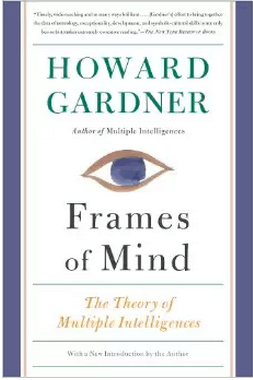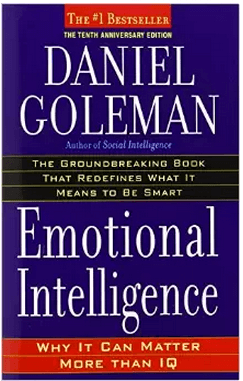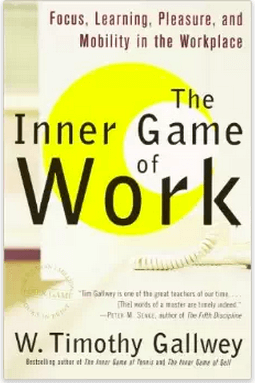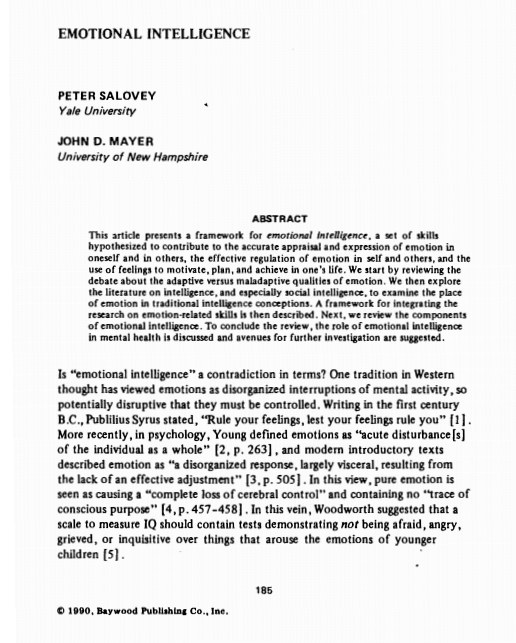Understanding Emotional Intelligence
Emotional Intelligence (EI) is the ability to monitor one’s own and others’ feelings and emotions, to discriminate among them, and to use this information to guide one’s thinking and actions. It affects how we manage behavior, navigate social complexities, and make personal decisions that achieve positive results.
Evolution
Until the last century, the understanding of intelligence was strictly related to cognitive functions such as memory, learning and problem solving. In 1983, Howard Gardner published the groundbreaking framework for emotional intelligence in his book Frames of Mind: The Theory of Multiple Intelligences. Seven years later, Peter Salovey and John D. Mayer coined the term in their article “Emotional Intelligence” and shocked people with their findings: people with average IQs (Intelligence Quotients) outperform those with the highest IQs 70% of the time.
| “ | At best, IQ contributes about 20 percent to the factors that determine life success, which leaves 80 percent to other forces; forces grouped as emotional intelligence. —Daniel Goleman | ” |
Emotional Intelligence and your IQ
Emotional Intelligence is a fundamental element of your behavior that is different from your intellect. It is a flexible skill; it can be learned. Author Daniel Goleman in 1995 created the argument that non-cognitive skills such as EI can and should be taught and learned.
Intelligence Quotient is your ability to learn and it does not change. Your IQ score in high school will remain the same throughout your lifetime. Both values are crucial to a well-rounded personality, but IQ is a much smaller piece of the whole.
Career success is tied to your Emotional Intelligence
Several years ago, job search engine CareerBuilder asked HR managers and hiring managers to assess their candidates’ and employees’ EI by observing a variety of behaviors and qualities. The findings concluded that employees with high EI demonstrate unique characteristics.

- Admit and learn from their mistakes
- Keep emotions in check and have thoughtful discussions on tough issues
- Listen as much or more than they talk
- Take criticism well
- Show grace under pressure
How to grow your Emotional Intelligence
According to author Timothy Gallway: Performance = potential – interferences
We all have the ability to grow our EI and in effect become a better performer. The interferences that we all possess (negative attitudes, beliefs and habits) get in our way and stop us from changing. You need to make the decision to change, grow and improve. It is important to identify your triggers and improve your response. Practice, Practice, Practice.
Emotional Intelligence components
The elements of Emotional Intelligence are grouped easily into 4 core skills in 2 competencies:
1. Personal competence—self awareness and self management
2. Social competence—social awareness and relationship management
Over the next few weeks our blog series will focus on a skill—examining each in depth and explaining what work you can do to increase your aptitude. Check back soon for Part 2 of the series: Self Awareness.
Want to learn more? Explore the resources referenced in this article:
 Frames of Mind: The Theory of Multiple Intelligences by Howard Gardener
Frames of Mind: The Theory of Multiple Intelligences by Howard Gardener Emotional Intelligence: Why it Can Matter More Than IQ by Daniel Goleman
Emotional Intelligence: Why it Can Matter More Than IQ by Daniel Goleman The Inner Game of Work by W. Timothy Gallwey
The Inner Game of Work by W. Timothy Gallwey Emotional Intelligence Published by Peter Salovey and John D. Mayer
Emotional Intelligence Published by Peter Salovey and John D. Mayer

